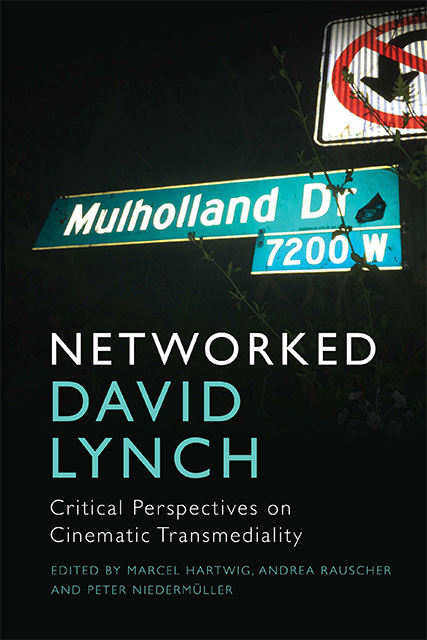Book contents
- Frontmatter
- Contents
- List of Figures
- Notes on Contributors
- Introduction: Entering Lynchtown
- Part I Approaching Intertexts
- Part II Twin Peaks as Transmedia Network
- Part III David Lynch's Transmedia Aesthetics
- Part IV Videographic Criticism of David Lynch’s Cinematic Work
- Conclusion: Leaving Lynchtown
- Index
Chapter 12 - Researching Audiovisually: Experiments in Videographic Criticism in David Lynch's The Elephant Man and Blue Velvet
Published online by Cambridge University Press: 19 October 2023
- Frontmatter
- Contents
- List of Figures
- Notes on Contributors
- Introduction: Entering Lynchtown
- Part I Approaching Intertexts
- Part II Twin Peaks as Transmedia Network
- Part III David Lynch's Transmedia Aesthetics
- Part IV Videographic Criticism of David Lynch’s Cinematic Work
- Conclusion: Leaving Lynchtown
- Index
Summary
In ‘La Caméra-stylo: Notes on Video Criticism and Cinephilia’, Christian Keathley draws out the tension between the explanatory and poetic mode in the production of digital film scholarship. Keathley (2011: 181) writes ‘it is language in that mode (spoken and written) that guides it. Images and sounds – even when carefully and creatively manipulated in support of an argument – are subordinated to explanatory language’. This definition of the explanatory register aligns somewhat with what Bill Nichols describes as the expository mode in documentary film, that which ‘emphasizes verbal commentary and an argumentative logic’ (ibid.: 31). However, as Keathley asserts, the explanatory mode also incorporates written text on-screen. Keathley suggests that works in the poetic register ‘resist a commitment to the explanatory mode, allowing it to surface only intermittently, and they employ language sparingly, and even then as only one, unprivileged component’ (ibid.: 181). Keathley, an early advocate for videographic criticism, has highlighted the unruly tendency of audiovisual material to ‘not willingly subordinate themselves’ to critical authority, instead posing further questions for the digital film critic (ibid.: 190). In this chapter, I will illustrate where some of the tensions lie between the poetic and explanatory modes and will extend this to include a discussion of the ‘exploratory’ mode in videographic criticism when considering five audiovisual essays I made about The Elephant Man (1980) and Blue Velvet (1986).
By the exploratory mode I am referring to ‘research that is not explicitly intended to test hypotheses (as in basic research) nor to solve practical problems (as in applied research) but is used to make initial forays into unfamiliar territory when studying new or poorly understood phenomena’ (Oxford Reference, n.p.). I am adopting the term exploratory broadly to encompass speculative research which describes some of the audiovisual essays I have created. The combination of images, sounds and text in the audiovisual essay allows a researcher to ‘re-imagine the very relationship between a cinematic object of study and critical commentary about it’ (Keathley 2011: 190). Catherine Grant later labelled this a form of ‘material thinking’ (Grant 2014: 49–62).
- Type
- Chapter
- Information
- Networked David LynchCritical Perspectives on Cinematic Transmediality, pp. 209 - 235Publisher: Edinburgh University PressPrint publication year: 2023



